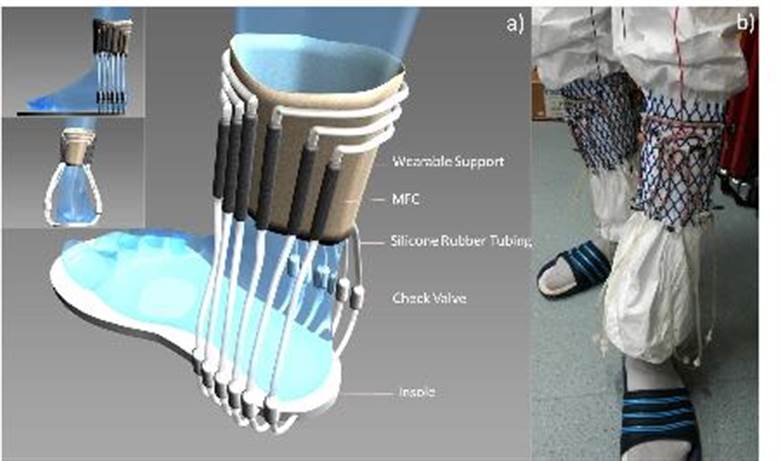University team offers first in wearable tech: electric socks powered by urine
16/12/2015

The socks are embedded with miniaturised microbial fuel cells (MFCs) the urine is pumped by the wearer's footsteps. MFCs use bacteria to generate electricity from waste fluids. They tap into the biochemical energy used for microbial growth and convert it directly into electricity.
Normally, continuous-flow MFCs would rely on a mains powered pump to circulate the urine over the microbial fuel cells, but this experiment relied solely on human activity. The manual pump was based on a simple fish circulatory system and the action of walking caused the urine to pass over the MFCs and generate energy. Soft tubes, placed under the heels, ensured frequent fluid push–pull by walking.
The wearable MFC system successfully ran a wireless transmission board, which was able to send a message every two minutes to the PC-controlled receiver module.
Professor Ieropoulos, who led the research, said: “Having already powered a mobile phone with MFCs using urine as fuel, we wanted to see if we could replicate this success in wearable technology.
“This work opens up possibilities of using waste for powering portable and wearable electronics. For example, research shows it should be possible to develop a system based on wearable MFC technology to transmit a person's coordinates in an emergency situation. At the same time this would indicate proof of life since the device will only work if the operator's urine fuels the MFCs.”
Image courtesy of the University of the West of England










